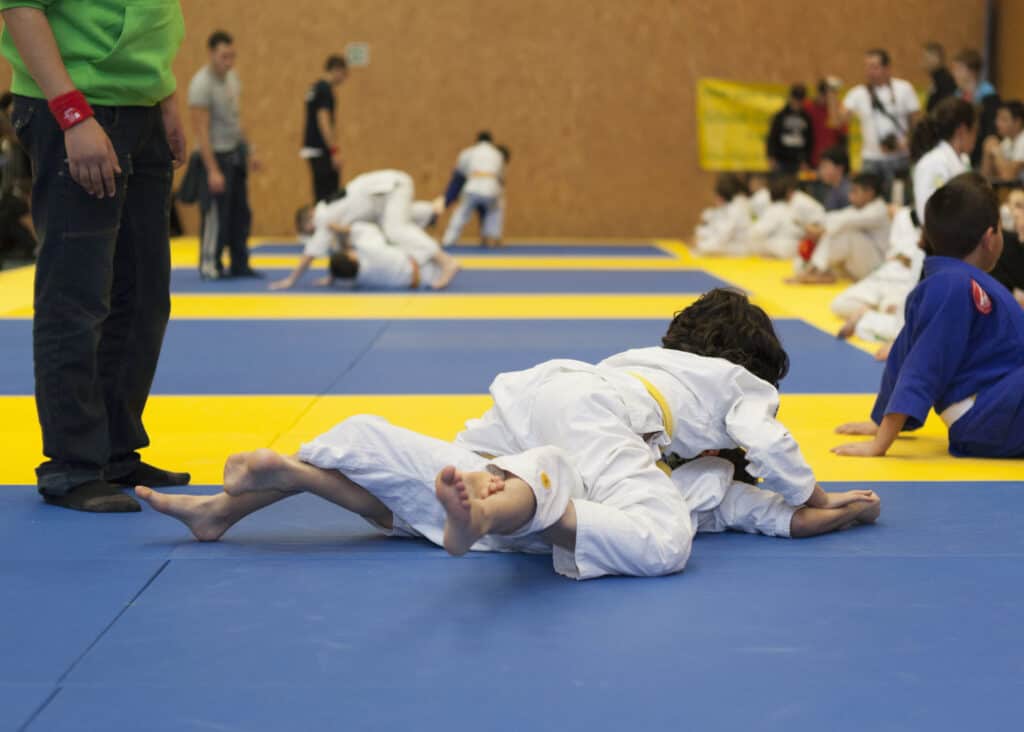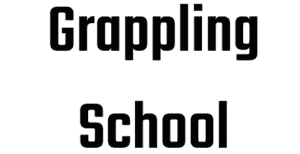
So you want to get your child into Brazilian Jiu-Jitsu classes? Great! Getting your child involved martial arts can be one of the most exciting and rewarding decisions a parent can make. It is important to find a sport that suits the child and household. BJJ might be a great choice, but you might be wondering how early a child can start jiu-jitsu classes.
Brazilian Jiu Jitsu (BJJ) has no season and is an individual sport but with many of the benefits of team sports. BJJ offers a great outlet for practitioners of any age, especially children. Getting your child started at the right age and appropriate training intensity is paramount for their interest and longevity in the sport.
Too often I have seen young children below the age of 6 be pushed too hard by their coaches and parents which results in burnout and disinterest from the child’s perspective.
A training environment that matches a child’s interest and development will keep them involved in BJJ for longer, leaving more time to absorb the benefits of jiu jitsu training.
At What Age Do Jiu-Jitsu Schools Start Accepting Students
I wanted to know the average age BJJ schools accept youth students across the US so I took a random sample of 100 schools in the US, 2 from each state and found the average to be 4.5 years old (n=100). Does this mean as soon as my child turns 4.5 years old I can enroll them in jiu jitsu classes? Not necessarily.
The age in which BJJ schools accept children varies from state to state. Generally, states with more schools and instructors tend to accept students at the 4 or even 3 year old mark. In areas where jiu jitsu is less established the ages range as high as 10 years old just to START training.
The lower the age a school accepts children into their program, the more expertise and experience required by the coaching staff. So if you are looking to get a 3 or 4 year old into BJJ classes, I would recommend finding an instructor with experience working with this age group and a program that is specifically designed for younger children (3-7 years old).
By the age of 5, MOST BJJ gyms will accept your child and training can begin but I always emphasize finding an environment that feels safe and fun for the child because trauma can occur easily at this age and an overly competitive environment is not suitable for most kindergarteners.
What Is The Best Age To Start Your Child In BJJ?
The best age to start training BJJ varies from child to child. In families with deep connections to BJJ, such as a Black-Belt-World-Champion-Gym-Owners, integration into BJJ classes is seamless and can be done as early as 2 years of age.
On the contrary, an only child or oldest sibling is not likely to be ready for BJJ classes until closer to the age of 6, especially if there are no close family members involved with the sport. In families with parents and older siblings already involved with BJJ, the younger siblings usually develop much more quickly as they try to keep up with their older siblings/parents.
Having siblings and parents involved with BJJ lowers the age a child can start training BJJ to as low as three or four! A safe age to start at almost any school in the US for BJJ classes is six years old. By that age, most children have met the required developmental markers both mental and physical to be in a BJJ class.
How To Know If Your Child Is Ready For Jiu-Jitsu
The first and foremost factor deciding whether a child is ready for BJJ classes is if they are bathroom trained. Attempting to enroll a child in BJJ before they are bathroom trained is a health hazard for the gym and should not be encouraged. Potty trained? GREAT! What is next?
Some basic communication skills and the ability to focus are required for most BJJ youth programs. These expectations tend to be met anywhere between ages three and seven, depending on the child. Another important developmental marker is children transitioning from the play-stage to the game-stage.
Game-stage meaning that they are aware of how to play a game with outcomes and consequences. Children in the play-stage have not yet understood the concept of rules, losing and order. If a child has not yet shown signs of entering the game-stage, they generally are not ready for BJJ classes.
Again, there is no specific age that children make the transition from play-stage to game-stage but considering this may help in evaluating if your child is ready for BJJ or not. The least important factor in deciding whether your child is ready for BJJ is their physical development. Your child does not need to be fast, strong or coordinated in order to start training.
A good BJJ instructor should be able to work with all body types and shapes. All a child needs is a positive attitude and the ability to listen, the physical development will come with time and training.
Benefits Children Starting BJJ Early
With over 12 years experience coaching youth BJJ classes, I have first hand seen many of the benefits BJJ can have for children such as fitness and respect. And of course there is the old association of martial arts and discipline.
So yes, your child is likely to become more disciplined after enrolling BJJ classes but, what else? Maurice Topper conducted a scientific study published (GGZ Noord Holland, De Friesland and Sport Fryslân 2020) in Holland to study the effect of school judo on the mental and physical health of children.
While Judo and jiu jitsu are not the same sport, it is fair to expect similar results from BJJ training, given how similar the two sports are (especially age 3-7). What the study found is that judo had a clearly positive effect on children’s mental health. Benefits include::
- Problems with peers decreased significantly
- Social anxiety and worry are reduced
- Fewer emotional problems reported
- Seek less approval from others
- Feel less vulnerable
Physical Benefits Of BJJ For Children
BJJ almost certainly affects children the same way the judo study suggests but there is still more to be gained from BJJ than just mental development. Physical development is a major aspect of BJJ training and after a few months of training you should expect to see:
- Increased agility and coordination
- Increased strength and speed
- Increased flexibility
- Balance
- Self-defense
- Potential for weight loss (⅓ of US children are overweight)
The combined mental and physical benefits of BJJ training make it one of the best activities for children to be involved in. The best way to achieve these results for your child is finding an instructor and school where the child is comfortable and has fun!
Link to article:
https://nieuws.defriesland.nl/schooljudo-zorgt-voor-minder-sociale-angst-bij-jongeren
